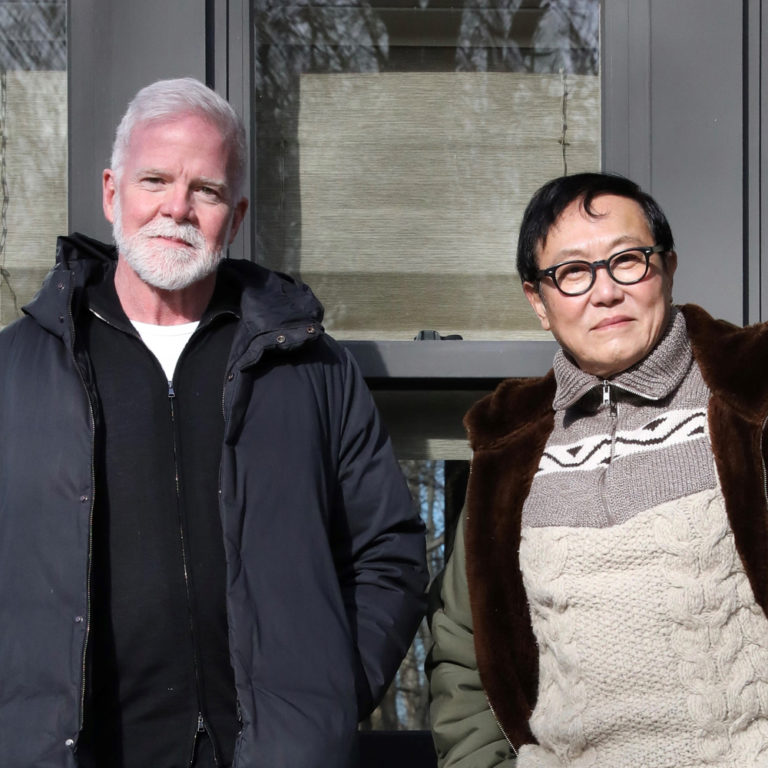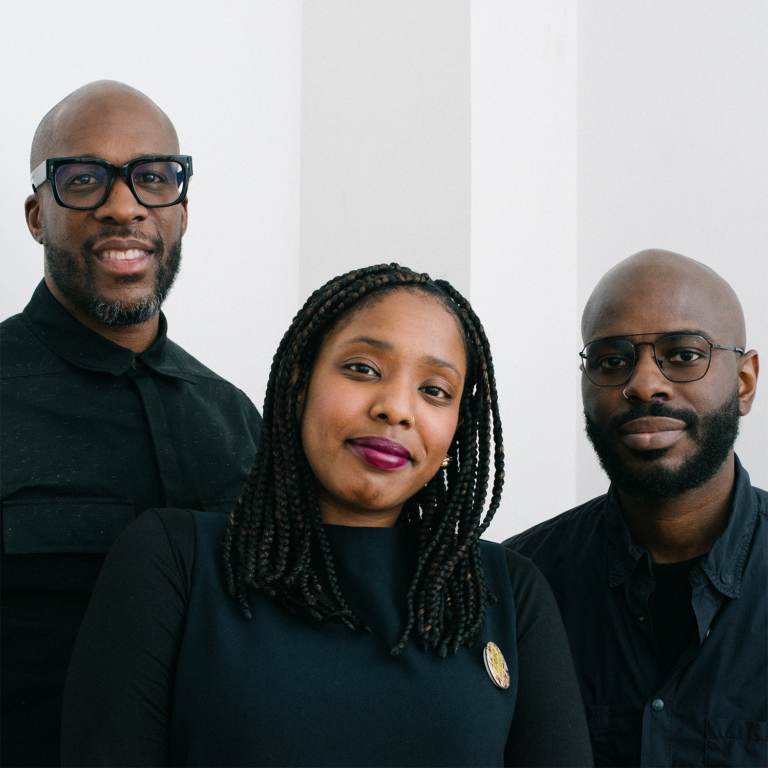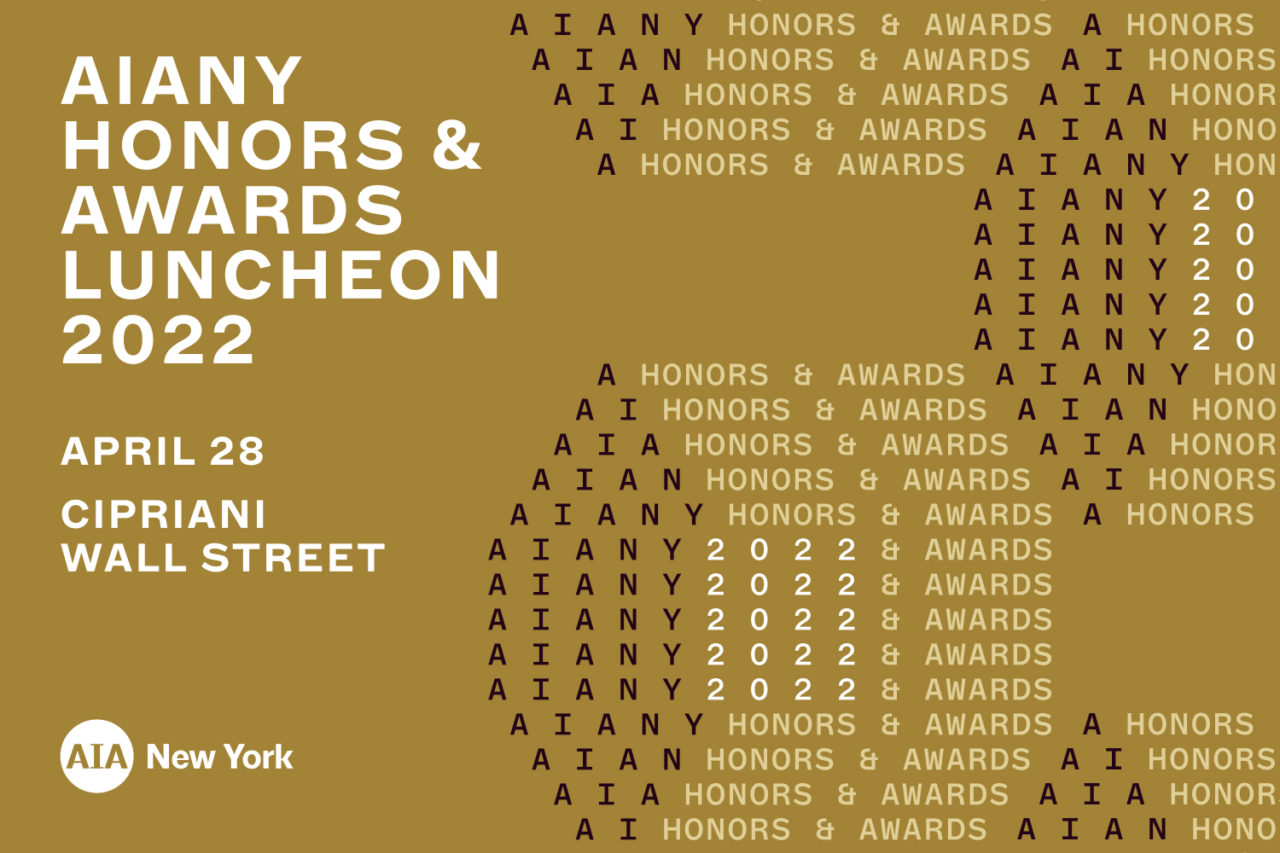by: AIA New York
After two years of virtual celebrations, AIA New York is returning to Cipriani Wall Street to celebrate the honorees of the 2022 Honors and Awards Luncheon. The awards program, taking place on Thursday, April 28, celebrates design excellence in New York City by honoring the winners of the AIA New York Design Awards and recipients of AIA New York’s four major annual awards. The event also serves as an important fundraiser for AIA New York and its ongoing mission to show that design and the city’s built environment matter.
At this year’s event, the chapter will honor Tsao & McKown Architects with the Medal of Honor; Maxine Griffith, FAICP, Principal of Griffith Planning & Design, with the Champion of Architecture Medal; Urban Omnibus with the Architecture in Media Award; and Deem Journal with the New Perspectives Award. Get to know the honorees below!

Medal of Honor
Tsao & McKown Architects
Calvin Tsao, FAIA, and Zack McKown, FAIA, discovered the joy of collaboration when randomly assigned to work together at Harvard GSD. They discovered a shared passion to improve peoples’ lives through design, and that essential for good design is understanding how people experience their environments. They also realized that their perspectives had benefited from living in different cultures. From the outset, Tsao & McKown has sought to engage across continents to gain greater understanding of humanity. This has taken them from Berlin to Bhutan, with realized projects also in Canada, China, Japan, Hong Kong, Taiwan, Malaysia, Thailand, Singapore, and the US. Projects range from a funerary crypt at the foot of Mount Fuji to Suntec City, a new town center in Singapore.
Believing that the success of a project relies not only on architectural constructs but also on the appropriateness of its program to the physical and social contexts, Tsao and McKown have aimed to maximize their influence by applying design thinking beyond the traditional role of the architect. An example of this is Suntec, where they were integrally involved in developing the program—and precipitated a paradigm shift regarding public space. With no precedents in South East Asia for privately-owned public spaces, they cited examples from other countries and convinced the authorities to allow additional buildable area in exchange for the addition of a large public space.
Current projects include reconfiguring and making additions to the National Palace Museum of Taiwan, in addition to a community of 3,000 residences—half of which are affordable—in Atlanta.
Building on their experiences across projects large or small, in service to an individual or a community, Tsao and McKown continue to stretch the boundaries of architecture in their quest to support the human experience.

Champion of Architecture Medal
Maxine Griffith, FAICP, Principal, Griffith Planning & Design
Maxine Griffith is Principal of Griffith Planning & Design. Prior to founding the firm in 2020, she held positions at Columbia University, serving as Senior Advisor to the President & Executive Vice President. Griffith oversaw land use and design management for the university’s 17-acre, award-winning Manhattanville campus, in addition to leading government and community relations efforts. Griffith was also Executive Director of the Philadelphia City Planning Department and Secretary (Deputy Mayor) for Strategic Planning. Prior to her appointment in Philadelphia, she served at the US Department of Housing and Urban Development, first as a Regional Director and then as HUD’s Assistant Deputy Secretary.
Griffith has served on the New York City Planning Commission, the National Board of Directors of the American Planning Association, and the Lincoln Institute of Land Policy. She currently serves on the boards of the Regional Plan Association and HypotheKids, an organization providing underserved students with hands-on STEM learning. She also teaches at Columbia’s Graduate School of Architecture Planning & Preservation.
Griffith was born in Harlem, New York. She has a Master of Architecture degree from the University of California, Berkeley and is a Fellow of the American Institute of Certified Planners.

Architecture in Media Award
Urban Omnibus
Based in New York City, Urban Omnibus is the Architectural League’s online publication dedicated to observing, understanding, and shaping the city. The publication raises new questions, illuminates diverse perspectives, and documents creative projects to advance the collective work of citymaking.
Since 2009, Urban Omnibus has published thousands of original editorial features presenting the work of activists, architects, archivists, artists, DJs, farmers, filmmakers, photographers, policymakers, planners, scientists, seniors, supers, teenagers, tenants, therapists, waste haulers, and so many more. Commissions, contests, residencies, and fellowships have provided new opportunities for young writers. Urban Omnibus has created interdisciplinary series exploring topics from the ubiquitous New York City rowhouse to the city’s infrastructures of criminal justice and practices of environmental remediation. Urban Omnibus was founded by Rosalie Genevro and is the work of many editors, writers, and researchers. Cassim Shepard and Varick Shute were the publications’ founding editors. Urban Omnibus is now produced by editor in chief Mariana Mogilevich with managing editor Joshua McWhirter.

New Perspectives Award
Deem Journal
Deem Journal is a Los Angeles-based biannual print publication and online platform that positions design as a social practice.
Born out of the belief that design is a constant part of our daily lives, founders Nu Goteh, Alice Grandoit, and Marquise Stillwell, along with their collaborators, realized a disconnect in the way people talk and think about design. The founders share a common perception that people are often preoccupied with aesthetics and the tangible output of design as opposed to the diverse, process-oriented practice that it actually is. In response, they established Deem to reimagine design as the process of adding value and a fundamental, shared experience.
The journal provides an in-depth look at the function of design within communities through careful consideration of their histories. Deem explores futures where design forges inclusive dialogue and intersectional dignity. In centering design as a social practice, the journal allows for non-traditional designers to identify with the field, expanding the consciousness of design as a complex, lived experience accessible to an array of audiences across disciplines.








